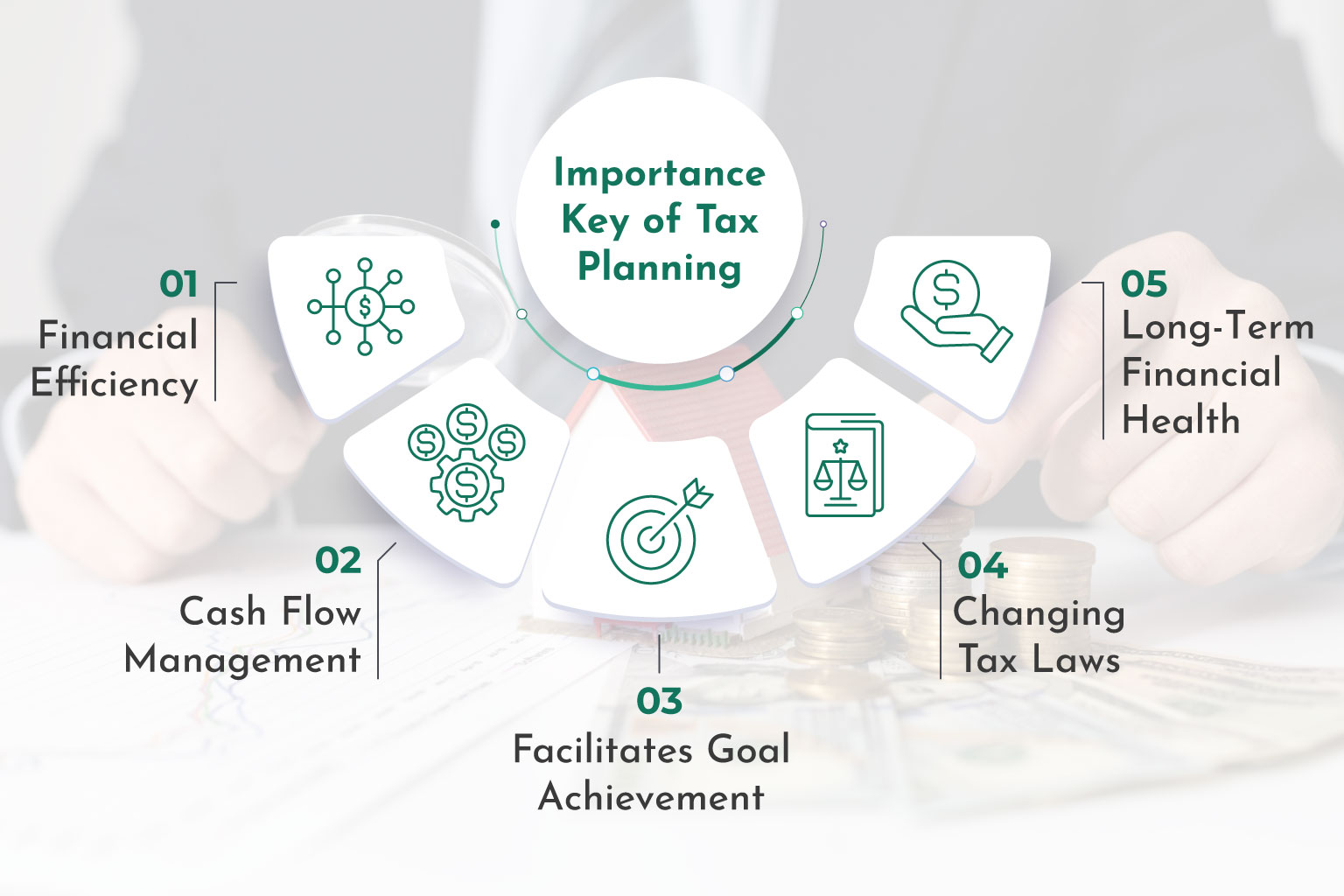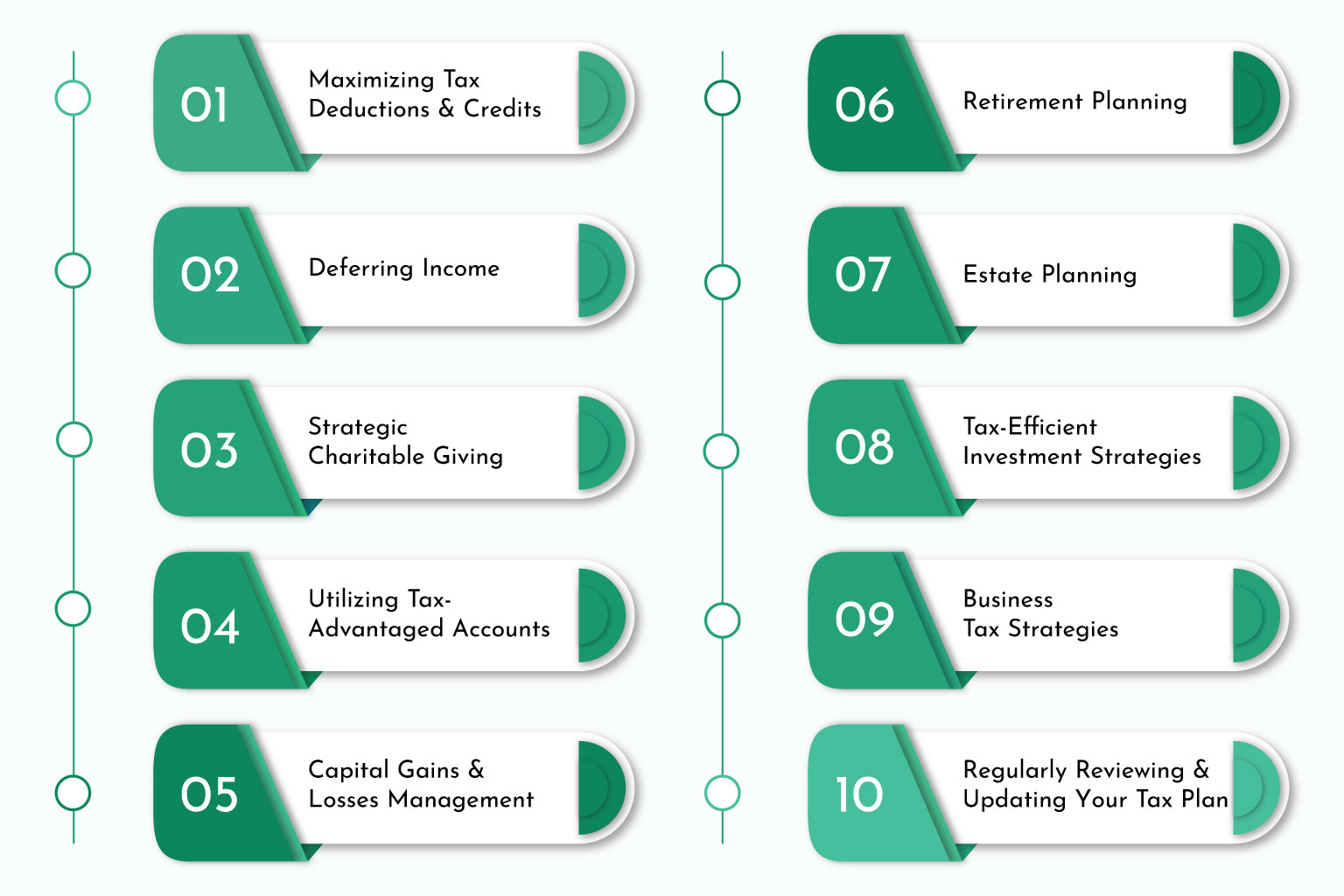Maximizes Financial Efficiency
Effective tax planning allows you to maximize your financial efficiency by strategically managing your taxable income. By identifying and utilizing available deductions, credits, and tax incentives, you can reduce your taxable income and retain more of your earnings. This approach not only enhances your financial flexibility but also provides opportunities to reinvest savings and achieve greater financial growth.
Ensures Compliance and Avoids Penalties
Navigating complex tax regulations can be challenging, and failing to comply can result in costly penalties and legal issues. Tax planning helps ensure that you adhere to all relevant tax laws and regulations, avoiding potential fines and interest on unpaid taxes. By staying informed and organized, you can meet your tax obligations and maintain compliance.
Enhances Financial Decision-Making
With a clear understanding of the tax implications of your financial decisions, you can make more informed choices. Whether you’re considering investments, retirement contributions, or business expenses, tax planning provides insights that help align your financial decisions with your long-term goals. This proactive approach leads to better outcomes and more strategic financial management.
Improves Cash Flow Management
Anticipating and planning for tax liabilities can significantly improve your cash flow management. By incorporating tax planning into your financial strategy, you can avoid unexpected tax-related expenses that could strain your finances. This foresight helps you manage your cash flow effectively, ensuring stability and enabling you to fund growth initiatives or other financial needs.
Facilitates Goal Achievement
Effective tax planning is essential for achieving your financial goals. By minimizing your tax liabilities, you can allocate more resources toward objectives such as saving for retirement, purchasing a home, or investing in new opportunities. This strategic approach ensures that you stay on track to meet your goals and make the most of your financial resources.
Adapts to Changing Tax Laws
Tax laws are dynamic and subject to frequent changes. Staying updated with these changes is crucial for maintaining an optimal tax position. Regularly reviewing and adjusting your tax strategies in response to new regulations helps you continue benefiting from available tax incentives and avoid compliance issues. Adapting to changes ensures that your tax planning remains effective and current.
Peace of Mind
A well-thought-out tax plan provides peace of mind by reducing the stress and uncertainty associated with tax season and potential audits. Effective tax planning allows you to focus on other essential aspects of your financial life, knowing that your tax obligations are being managed efficiently and effectively.
Enhances Long-Term Financial Health
Integrating tax planning into your overall financial strategy supports long-term financial health. You can ensure sustained stability and growth by considering tax implications in your retirement planning, investment management, and estate planning. Effective tax planning contributes to your overall financial well-being and success over the long term.
In summary, tax planning is critical to managing your finances effectively. It helps you maximize efficiency, ensure compliance, and make informed decisions while improving cash flow and supporting your financial goals. By prioritizing tax planning, you can navigate the complexities of tax regulations and enhance your financial outcomes.



